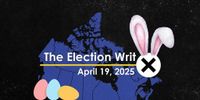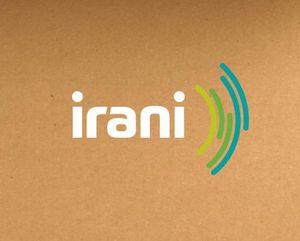The 2025 Canadian federal election is heating up as voters prepare to head to the polls on April 28. With the advance voting period already underway, political tensions are rising, particularly in the Esquimalt-Saanich-Sooke riding where Liberal candidate Stephanie McLean is facing scrutiny over her past political affiliations.
McLean, a former member of the Alberta NDP from 2015 to 2019, made headlines recently after it was revealed that she donated $350 to the Conservative Party of Canada in June 2023. This revelation has sparked debate among political analysts and voters alike, questioning her loyalty and motivations as she now seeks to represent the Liberal party in the upcoming election. Critics argue that such a shift in party allegiance raises concerns about the integrity of her candidacy.
As the election campaign intensifies, the focus on candidates’ backgrounds is becoming more pronounced. In a political landscape where every move is scrutinized, McLean’s previous donations and affiliations are being framed as potential liabilities. This mirrors the situation faced by former BC Premier Christy Clark, who also donated to the Conservatives before attempting to run for the Liberals. Both cases highlight the challenges candidates face in maintaining a consistent political identity.
The race in Esquimalt-Saanich-Sooke is particularly interesting as it features four candidates with diverse backgrounds and expertise. Maja Tait, the NDP candidate, brings experience as a municipal councillor and former mayor, while Grant Cool, representing the Conservatives, is a PhD-level aerospace engineer with a strong business acumen. McLean is advocating for community leadership through her legal background, and Ben Homer-Dixon, the Green candidate, offers a fresh perspective with his articulate vision for the future.
Voter engagement appears to be high, with nearly two million votes cast on the first day of advance voting on April 18, according to Elections Canada. This surge in participation suggests that Canadians are eager to express their opinions and influence the direction of their country. The advance voting period runs through April 21, with many voters choosing to cast their ballots early during this Easter long weekend.
As the election date approaches, the political landscape remains fluid. Polling data shows a competitive race, with varying results from different polling firms. Liaison Strategies reported the Liberals ahead by five points at 44% compared to the Conservatives at 39%, while Mainstreet Research indicated a slight lead for the Conservatives at 43% over the Liberals at 41%. These discrepancies underscore the unpredictability of voter sentiment as the campaign enters its final stretch.
In Quebec, there appears to be a shift following the French-language leaders' debate, with the Bloc Québécois gaining traction at the expense of the Liberals. This trend may reflect the nuanced dynamics of regional politics, particularly as the election nears.
Nationally, the Poll Tracker indicates that the Liberals have dropped 0.7 points to lead at 43.6%, while the Conservatives have gained 0.5 points, trailing at 38%. The NDP remains steady at 8.3%, with no significant movement observed in most regions. However, Alberta has seen a notable swing, with the Conservatives gaining four points, largely at the expense of the Liberals, who have lost three points in the province.
As voters in Esquimalt-Saanich-Sooke head to the polls, they face a decision that transcends party lines. Many are weighing the candidates' individual merits against their party affiliations, reflecting a desire for leadership that aligns with their values and aspirations for the future. This election is not merely about choosing a party but about selecting representatives who will advocate for their communities on a national stage.
The stakes are high as Canada navigates complex issues, including a trade war with the United States and pressing socioeconomic challenges. Voters are encouraged to consider the long-term implications of their choices, as the next government will shape the country’s policies for years to come.
As the advance voting period progresses, Canadians are reminded that their participation is crucial. With an estimated 32,370,000 ballots expected to be cast, the collective voice of the electorate will play a significant role in determining the outcome of this pivotal election.
In the end, the decision on election night will reflect not just the political preferences of individuals but also the broader aspirations of a nation at a crossroads. The candidates’ experiences, values, and visions for the future will undoubtedly influence the direction Canada takes in the coming years.
As we approach the final days of the campaign, it is essential for voters to remain informed and engaged. Each ballot cast is a step toward shaping the future of Canada, and the choices made in this election will resonate for generations.





